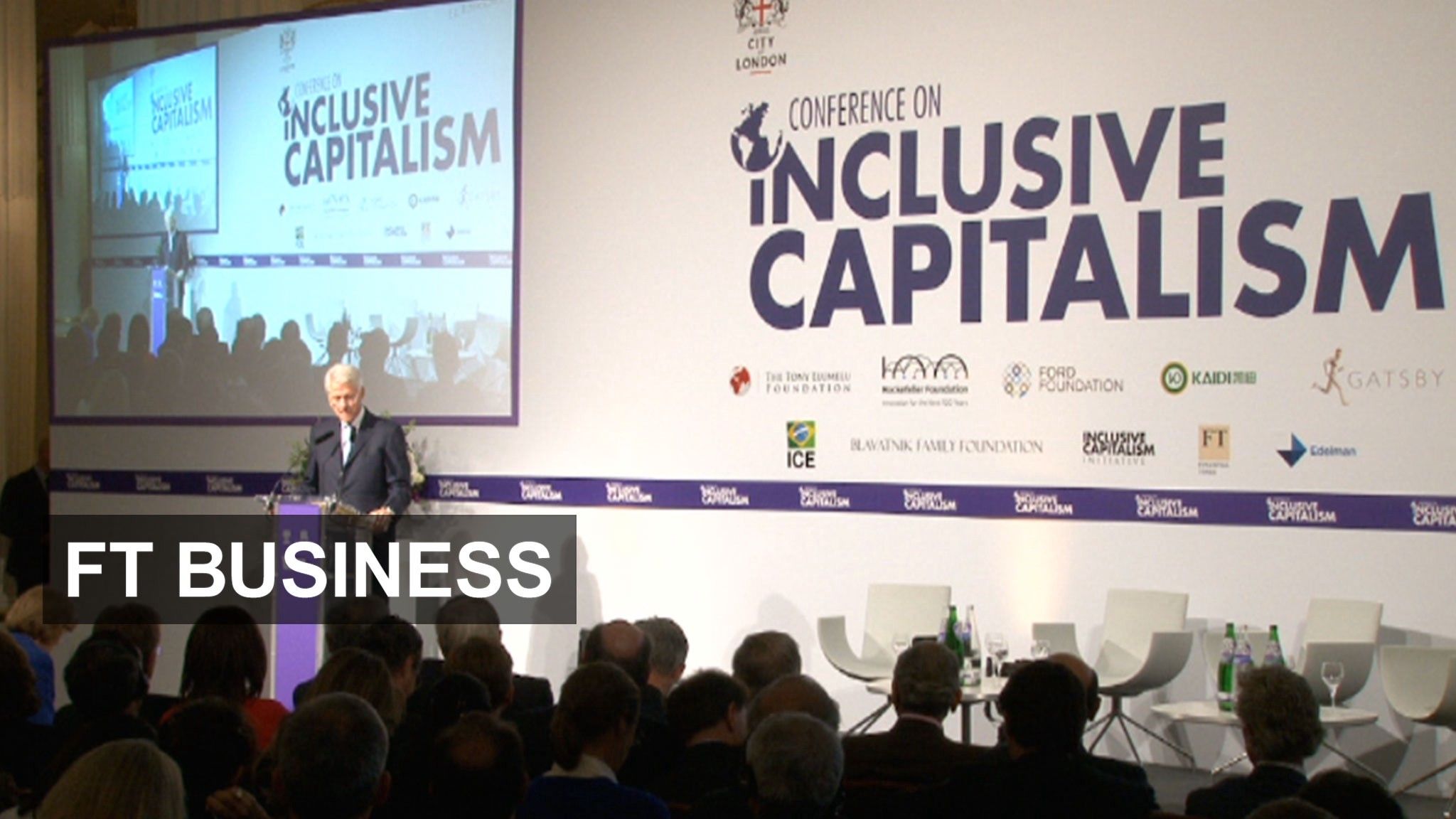There is a violent extremist fifth column operating at the heart of power in Britain, and they stand against everything we hold dear in Western democracies: civil liberties, equality, peace, diplomacy and the rule of law.
You wouldn’t think so at first glance. In fact, you might be taken in by their innocuous-looking spokespeople, railing against the threat of Muslim extremists, defending the rights of beleaguered Muslim women, championing the principle of free speech — regularly courted by national TV and the press as informed experts on global policy issues.
But peer beneath the surface, and an entirely different picture emerges: a web of self-serving trans-Atlantic elites who are attempting to warp public discourse on key issues that pose a threat not to the public interest, but to their own vested interests.
One key organisation at the centre of this web is the Henry Jackson Society (HJS), an influential British think-tank founded a decade ago, ostensibly to promote noble ideals like freedom, human rights and democracy. But its staff spend most of their energies advancing the very opposite.
More recently, HJS has turned to demonising Edward Snowden supporters and privacy advocates as accomplices with al-Qaeda and the ‘Islamic State’ (IS) — as is also being done by Rupert Murdoch’s Sunday Times, with its hole-riddenstory claiming Snowden’s revelations’ had allowed Russia and China to identify active MI6 agents.
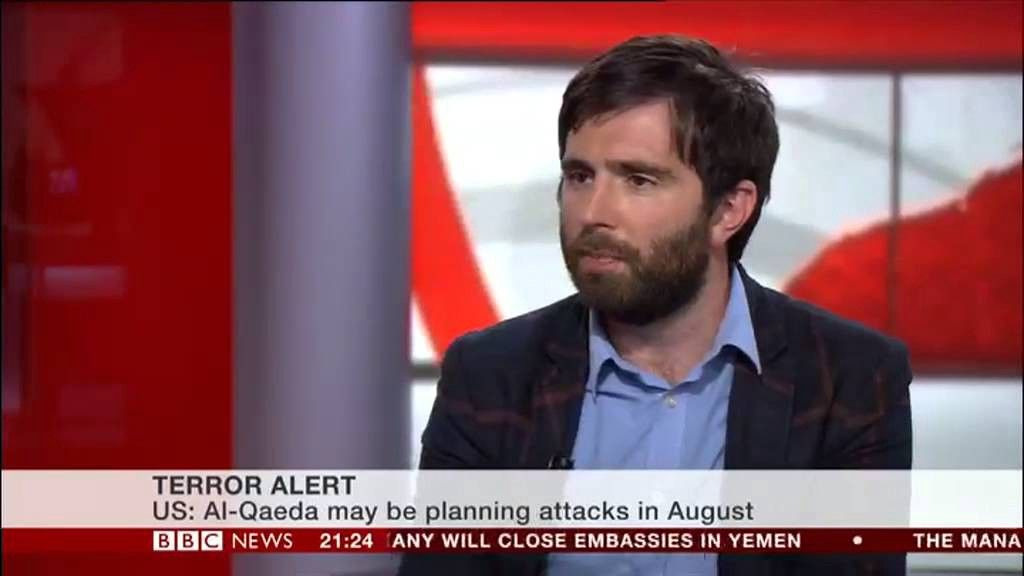
Journalists who have reviewed the Snowden files say that there was nothing in them that would permit MI6 operatives to be identified.
Former senior CIA official Robert Steele, whose books have received endorsements from the past and then serving Chairman of the Select Committee on Intelligence, said:
“I can state categorically that there could not have been names of either intelligence officers or agents in the Snowden materials. The system simply does not work that way.”
But the two-week time period between the publication of HJS’ report, and the Sunday Times’ hit-piece, is unlikely to be a coincidence. Like the Times piece, the latest HJS report damning Snowden draws almost entirely on anonymous intelligence sources along with unsubstantiated claims from the very officials responsible for mass surveillance, to claim that Snowden’s revelations had “crippled” the ‘war on terror.’
The HJS report also ignores countervailing facts, such as that documented by the New America Foundation, that the NSA’s dragnet surveillance programmes “had no discernable impact” on preventing terrorist acts.
The possibility that the HJS’ report and the Times’ claims are part of a wider smear campaign to justify mass surveillance, orchestrated by elements of the intelligence community, is indirectly supported by a startling new report launched last Thursday at the University of Bath.
The report by the well-known public interest organisation, Spinwatch, throws new light on the Society’s origins, finding that with just one exception:
“… all the journalists among the signatories were associated with The Times: including assistant editor Gerard Baker, and columnists Oliver Kamm and Stephen Pollard. Gove had also been a senior Times journalist until his election to parliament in 2005, and continued to write for the paper. Another signatory, the Hudson Institute economist Irwin Stelzer, was a columnist for The Sunday Times, and a close advisor of Rupert Murdoch.”
HJS is also directly connected to senior US and British security officials complicit in expanding the surveillance apparatus, according to Spinwatch.
For the first time, Spinwatch’s report reveals clearly how HJS is using its unprecedented access to the Houses of Parliament with the support of neoconservative and far-right networks in the US, along with wealthy elites in the UK, to protect corporate power, advance the police-state at home, and legitimise militarism for oil abroad.
Bush militants find a new home
Despite its modest beginnings at Cambridge University, the Society’s early neoconservative patronage was evident from the list of American luminaries who signed HJS’ Statement of Principles. Many of those signatories, the Spinwatch report shows, “were associated with the campaign for war in Iraq, particularly through lobbying organisations such as the Project for a New American Century and the Committee for the Liberation of Iraq.”
They include pro-war hawks like:
Richard Perle, a former US Assistant Secretary of Defence, and chairman of the Pentagon’s Defence Policy Board from 2001 until 2003, who had to resign after criticism over his directorships at companies with “significant business interests linked to the US Department of Defence”;

William Kristol, founding editor of Rupert Murdoch’s Weekly Standard, and co-founder of the notorious pro-Bush pro-war think-tank, the Project for a New American Century, as well as a member of the equally hawkish Committee for the Liberation of Iraq;
Robert Kagan, a PNAC co-founder;
Clifford May, president of newfangled neocon think-tank, Foundation for the Defence of Democracies and former Director of Communications for the Republican National Committee;
Bruce P. Jackson, President of a further neocon group, Project for Transitional Democracies, and previously a military intelligence officer under Richard Perle at the Office of the Secretary of Defence (1993 to 2002);
General Jack Sheehan, former NATO Supreme Allied Commander and commander-in-chief for the US Atlantic Command (1994–1997), serving simultaneously under Perle in the Defence Policy Board and as vice-president of US defence contractor Bechtel, “which received the first major contract for the reconstruction of Iraq”;
James Woolsey, former CIA director, another member of Perle’s Defence Policy Board in 2003, while he was also “a principal of Paladin Capital Group, a venture capital firm with investments in homeland security, as well as a vice-president of defence contractor Booz Allen Hamilton” — which of course had employed Edward Snowden on behalf of the National Security Agency (NSA);
Hudson Institute economist Irwin Stelzer, then Rupert Murdoch’s right-hand man, and now US business columnist at the Sunday Times.
These names speak for themselves. They show that the HJS, at the outset, was intended by some of its key founders to legitimise violent regime-change in the Middle East in the name of spreading “democracy” can hardly be doubted.
Conservative bunker
Under its cross-partisan pretensions, at launch the HJS also had significant support from Tory and Labour politicians, although its right-wing leanings were hardly a secret.
Authored by academic sociologist Prof. David Miller, University of Bath doctoral researchers Tom Griffin and Hilary Aked, and social scientist Dr. Sarah Marusek, the Spinwatch report goes into detail listing the backgrounds and connections of HJS’ prominent British signatories:
Four Tory MPs, namely, Michael Gove, Ed Vaizey, David Willetts, and Michael Ancram — the first three, of course, would go on to become senior ministers in David Cameron’s government; Robert Halfon, Director of Conservative Friends of Israel, and Nick Boles, Director of Policy Exchange, the pro-Tory think-tank chaired by Gove; as well as Labour MPs Denis MacShane, Gisela Stuart, and Jackie Lawrence.

Other influential British members who signed up at HJS’ founding were Prof. Vernon Bogdanor, David Cameron’s former tutor; Paul Cornish of Chatham House; Ministry of Defence consultant and former Jane’s Defence Weekly editor Paul Beaver; Lord Powell, personal advisor to Prime Ministers Margaret Thatcher and John Major; Maj-Gen. John Drewienkiewicz, Military Advisor to the High Representative for Bosnia in 1998; Jamie Shea, Deputy Assistant Secretary General for External Relations in NATO; former MI6 chief Sir Richard Dearlove, who was deeply involved in the fabrication of claims about weapons of mass destruction in the run-up to the 2003 Iraq War; Col. Tim Collins, a former British Army officer who now heads up intelligence-based security services contractor New Century; and Mark Etherington, Civil Governor of Iraq’s Wasit province (2003–2004).
In much the same way that the ‘special relationship’ between the US and Britain basically translates into Britain acting as America’s de facto diplomatic poodle, HJS has long seen itself as an outpost to disseminate US neoconservative ideology in the British political establishment, media and civil society.
In August 2006, at a talk hosted by the Hudson Institute in Washington DC, Douglas Murray, who would go on to join HJS as a director in 2011, proclaimed that:
“Movements like the Henry Jackson Society in London and the Euston Group explicitly linked to and looked to the bold and inspiring philosophy which revived American conservatism in the last half century. We look to your example and we like what we see.”
Let’s not forget that this was three years into the Iraq War, when no WMD was found in Iraq, and as the country was collapsing into civil war. Meanwhile, the US and UK were racking up massive debts, not least due to war-expenditures, as unaccountable US and British defence contractors were reaping profits from failing to reconstruct the devastated country.
By the end of that year, Miller et. al write, HJS “had emerged as the leading institutional expression of British neoconservatism, a novel creation of British intellectuals who shared the concern of the original American neoconservatives in the face of an emerging popular anti-war movement in Britain.”
For the remainder of their report, the Spinwatch team provide extensive documentary evidence proving that HJS’ primary activities were essentially designed to make neocon ideals as palatable and reasonably sounding as they possibly could.
That meant promoting excessive and xenophobic fear-mongering about Muslims, demonising antiwar activism and political dissent on British university campuses, while trying to rehabilitate mass hatred of banks and the financial sector in the aftermath of the 2008 financial crash.
Mainstreaming the far-right
In May 2009, HJS founders Alan Mendoza and Barak M. Seener participated in a Washington DC conference called ‘Libel Lawfare: Silencing Criticism of Radical Islam,’ whose bizarre theme was that criticism of Islam was being suppressed through lawsuits based on hate speech laws.
Apart from the apparently minor problem that there is no actual evidence for this, there was the somewhat more pertinent issue of the conference’s main sponsor, the Middle East Forum.
As Prof. Miller and his team report, the Middle East Forum’s founding director is Daniel Pipes, who has “enjoyed extensive public recognition including presidential appointments,” despite promoting racist and xenophobic ideas, such as “falsely claiming that President Obama was a former Muslim, and that a secular New York public school teaching Arabic language was a ‘Madrasa.’”
Pipes’ racist perspective was that being ethnically Arab implies promoting terror. His main objection to the school regarded “the more basic problems implicit in an Arabic-language school: the tendency to Islamist and Arabist content and proselytizing.”
In an exemplary illustration of the nature of Pipes’ campaign against Islamist extremism, he once warned that:
“West European societies are unprepared for the massive immigration of brown-skinned peoples cooking strange foods and not exactly maintaining Germanic standards of hygiene.”
In March 2005, after Pipes was invited to speak at the University of Toronto, a letter to university management from professors and graduates noted his “long record of xenophobic, racist and sexist speech that goes back to 1990.”
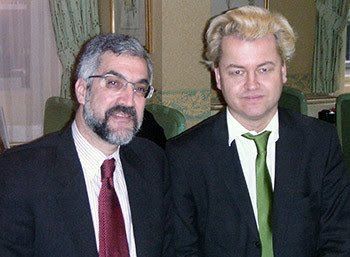
But HJS has had a curious habit of aligning itself with such groups.
In May 2009, Spinwatch reports, the Henry Jackson Society hosted a speech by Siv Jensen, leader of the Norwegian Progress Party and currently finance minister under the coalition government. The Progress Party has been widely recognised as pandering to xenophobic anti-Muslim sentiments.
From 1999 to 2006, far-right terrorist Anders Breivik, who was convicted for the massacre of 77 people, was an active member of the Progress Party, which some believe played a key role in radicalising him with its increasingly hysterical paranoia about immigration bringing on the “sneak-Islamisation” of Norwegian society.
The link is not trivial. In 2009, 16% of those expressing voter sympathies for the Progress Party declared themselves to have “extreme right-wing sympathies.”
HJS’ own apparent sympathies with the same ideology that motivated Breivik came to fruition when Marko Atilla Hoare, a longtime HJS founding member and director, was summarily dismissed from his position by Alan Mendoza after posting an article criticising Breivik’s ideology on the HJS website. Demonstrating HJS’ profound consistency on protecting freedom of speech, Mendoza saw to it that Hoare’s entire article was removed.
One of HJS’ funders in 2011 was the Abstraction Fund, whose president and treasurer is Nina Rosenwald. As Max Blumenthal exposed in The Nation, Rosenwald has funded a tangled web of organisations fuelling “a rapidly emerging alliance between the pro-Israel mainstream and the Islamophobic fringe.”
In addition to HJS, Rosenwald has also funded neo-fascist networks including Brigitte Gabriel, who in 2006 declared that Muslims “have no souls — they are dead set on killing and destruction”; former Pentagon official Frank Gaffney’s neocon Center for Security Policy (CSP), which has published conspiratorial pamphlets warning that American Muslims are engaged in a “stealth jihad” to install “Shariah Law” in the country; and the Gatestone Institute, which publishes racist articles calling for the depopulation of ethnic Moroccans from Europe, along with articles by the blogger who was among Breivik’s chief sources of hateful inspiration.
As I previously reported, Gatestone — where Rosenwald is also founding president — includes on its board luminaries like Lord Daniel Finkelstein, a former director of the pro-Tory think-tank Policy Exchange which is closely linked with HJS, an advisor to David Cameron, as well as a Times columnist and former executive editor.
And Gatestone is also directly connected to HJS. Douglas Murray, HJS Associate Director, was simultaneously on Gatestone’s board until late 2014, and is now a Distinguished Senior Fellow there.
‘Counterjihad’ as a cover for white supremacism
The Spinwatch report points to a number of revealing statements made by HJS directors demonstrating the sweeping xenophobia that appears to motivate their counter-extremist work.
“We long ago reached the point where the only thing white Britons can do is to remain silent about the change in their country.”
This was Murray’s lamentation in one rancid oped complaining that London had become “a foreign country,” because, literally, “there aren’t enough white people around.”
And he went on: “Ignored for a generation, they are expected to get on, silently but happily, with abolishing themselves, accepting the knocks and respecting of their country.”
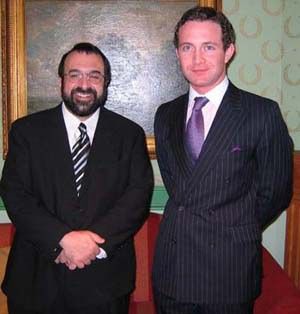
Murray has made many similar statements over the years, mostly focused on the grave threat to Europe posed by Muslim immigrants.
The shift in language here is critical. Open references to how “white people” are being besieged by black and brown-skinned immigrants and ethnic minorities is no longer acceptable in polite society, and strains the boundaries of laws against racism and incitement.
This appears to explain the increasing shift toward re-configuring exactly the same discriminatory attitudes, using language that focuses on new seemingly acceptable categories of ‘foreignness,’ namely, religion and culture.
In one disturbing illustration of this shift from March 2013, Murray’s boss, HJS executive director Alan Mendoza, gave a speech at an American Israel Public Affairs Committee (AIPAC) conference in Washington DC, where he complained, according to the Washington Jewish Week:
“Immigration is also a reason for rising anti-Israel feelings [in Europe]. In 1998, 3.2 percent of Spain was foreign-born. In 2007, that percent had jumped to 13.4 percent.”
Note that Mendoza’s primary concern is simply “foreignness,” which is automatically equated with hostility to Israel. But he goes on, then, to specify his particular concern about Muslims:
“In cities such as London, Paris and Copenhagen, 10 percent of residents are Muslim. The European Muslim population has doubled in the past 30 years and is predicted to double again by 2040.
“For all the benefits that immigration has brought, it has been difficult for European countries to absorb immigrants into their society given their failure to integrate newcomers.”
Here, subtly, Mendoza mingles the language of fear of Muslim hordes, permanently altering the European landscape, with more general racialised concerns about how to “absorb immigrants” and “integrate newcomers,” neither of whom are specified as Muslim.
He then switches back to more bluntly demonising Muslims in Europe, whose “voices are heard well above the average Europeans, who tend not to speak out… the Muslim immigrants do this with full knowledge that they would not be allowed to speak out like that in many Middle Eastern countries” — which is ironic given that the one thing Muslim populations are allowed to speak about in Middle East dictatorships is the Palestine issue.
Similarly, William Shawcross, who was an HJS director from 2011 until he resigned in 2012 to take charge of the UK Charity Commission, previously wrote about how Europe is “threatened by a vast fifth column — that there are thousands of European-born people, in Britain, in France, in Holland, in Denmark, everywhere — who wish to destroy us.” These people are “Islamo-fascists who are united in hatred of us.”
Under Shawcross’ tenure, more than a quarter of the Charity Commission’s statutory investigations that remain open since April 2012 have targeted Muslim organisations.
Saving women by hosting misogynists
But as Prof. Miller and his team observe, there is a real tension between HJS’ ostensibly liberal values and its staunch right-wing agenda.
Last year, for instance, HJS screened the film, ‘Honour Diaries,’ produced by the well-known American anti-Muslim hate group, the Clarion Project. Then in January 2015, HJS published a report on ‘honour’-based violence against women in the UK, “predominantly a problem in minority South Asian communities.”
While there is no doubt that honour-based violence is a real problem that deserves to be taken seriously and tackled, the problem is HJS’ use of the issue to problematise Muslims.
“Before this, HJS had never shown any substantive interest in women’s rights in the UK; it had never, for example, conducted any research previously on the far more widespread problem of domestic violence more broadly,” the Spinwatch authors observe.
Even more damningly, in the same month, HJS hosted a talk by Bobby Jindal, the notorious Republican Governor of Louisiana known for promoting misogynist and homophobic legislation on religion and abortion.
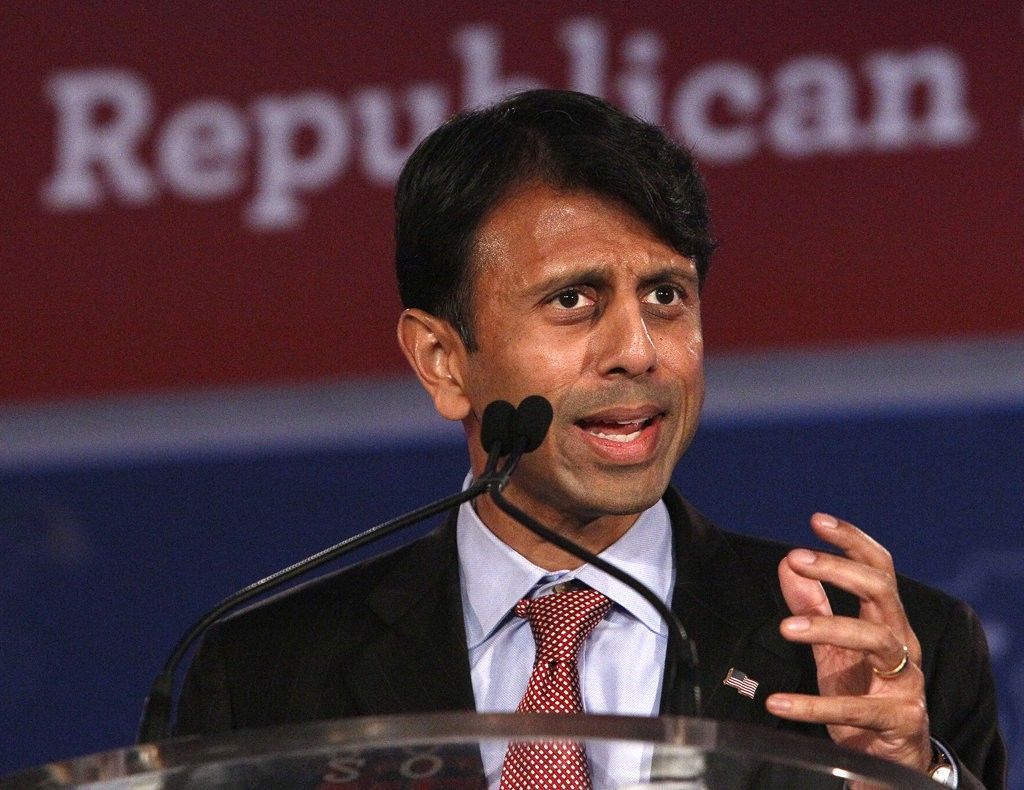
In December 2014, Spinwatch reports, “he had become embroiled in a row due to his involvement in a prayer rally paid for by the ultra-conservative American Family Association, which is accused of linking natural disasters like Hurricane Katrina to the growing acceptance of same-sex marriage and abortion.”
At his HJS event, Jindal claimed that Muslim immigrants were seeking “to colonise western countries,” and repeated discredited claims about Muslim “no go” zones in Britain. Afterwards, “Jindal stood by his comments and the HJS issued neither clarification nor criticism.”
‘Counterjihad’ as cover to demonise political dissent
The abuse of ‘counter-extremism’ to legitimise xenophobic white supremacism goes hand-in-hand with demonising those who might challenge this approach.
The Spinwatch report brings together alarming public record evidence of how the HJS project, ‘Student Rights,’ claims to be monitoring and opposing extremism on university campuses, but in reality is simply using the spectre of ‘extremism’ to smear student activism against state criminality, while attempting to protect white supremacist movements from legitimate criticism.
One revealing example of this highlighted by Spinwatch is Student Rights’ opposition to a ‘no platform for fascists’ policy passed by the London School of Economics (LSE) Students’ Union.
At the time, HJS’ Student Rights project “argued that the far-right British National Party was ‘a legitimate political party that has won two seats in the European Election, has around 60 councillors in the UK and just under one million people voted for them across the UK,’ and thus should be allowed to speak on campus.”
While defending fascists, Student Rights still claim to be concerned about certain universities permitting extremist “Islamist speakers” to speak on campus. Even this has often been a cover to target dissent. In one instance, Student Rights “suggested that a university cancel a whole week’s worth of events critical of the ‘War on Terror’ because it saw this as ‘fuelling grievances against the West’, despite never suggesting that any law would be broken.”
HJS’ Student Rights has also attacked academics who “criticised — or advocated a boycott of — Israel” as “extremists.” This sort of misguided ‘counter-extremism’ has frequently generated inflated media attention, only to be disproven later.
For instance, the group once produced a briefing condemning two LSE staff members who were members of the British Committee for the Universities of Palestine (BRICUP), claiming that a BRICUP event involved anti-Semitic jeering. The BBC even reported the claims, before being forced to “ultimately issue a correction” when they turned out to be false.
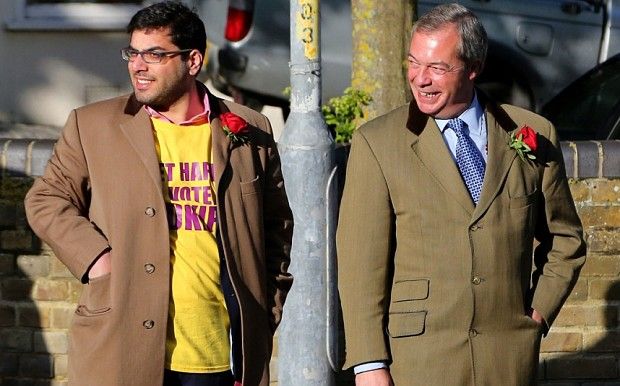
According to then HJS fellow and Student Rights director, Raheem Kassam, Student Rights’ equated “increasing political extremism” with Palestine solidarity activism. Kassam went on to becoming Managing Editor at the equally xenophobic Breitbart UK, run by professional climate denier James Delingpole, before moving on to become Nigel Farage’s campaign manager at UKIP.
As Prof. Miller and his team conclude in their report:
“As well as pressuring universities to impose restrictive measures on Muslim students that would, in effect, institutionalise Islamophobia, its [Student Rights’] work also sought to narrow the space for all radical political dissent on campus.”
The HJS’ Stalinist mindset on free speech and academic debate was an uncannily familiar precursor to what is now official Tory government policy under the revamped ‘Prevent’ agenda.
The new Counter-Terrorism Security Bill, and its associated ‘Prevent duty’ guidance, seeks to make it mandatory for all public sector works in universities, schools, nurseries, hospitals, local authorities and so on to monitor and prevent all forms of ‘non-violent extremism.’
This is despite the fact that Home Secretary Theresa May herself, in an interview about the legislation on BBC Radio 4, could not offer a coherent definition of ‘non-violent extremism.’ The convenience of that nebulous definitional void means that all manner of views sceptical of government policy — particularly militarised and discriminatory government domestic and foreign policies in the context of the ‘war on terror’ — could be equated with ‘non-violent extremism.’
HJS also has a close relationship with another organisation spawned in the heart of Whitehall: the counter-extremism think tank known as the Quilliam Foundation.
HJS’ Kassam, the Spinwatch team note, admitted to working “‘closely’ with the Quilliam Foundation” in 2010, and Quilliam’s Ghaffar Hussain “later served on Student Rights’ advisory board,” as well as an HJS fellow.
“The significance of this collaboration is in highlighting how attuned Student Rights’ practices were with those condoned by the state; Quilliam received millions in government funding, pushing a very similar narrative.”
Maajid Nawaz’s Quilliam Foundation is plugged into the same right-wing support network in the US. As I exposed in an earlier investigation over the last five years, Quilliam has received about a million dollars from the Gen Next Foundation, a philanthropy network that operates as a charitable front for the most extreme right of the Republican Party.
Quilliam’s American directors have included senior neoconservative figures like Chad Sweet, a former Bush administration homeland security official and campaign manager for the openly racist, homophobic, war-mongering bigot Ted Cruz; as well as individuals connected to Saudi terror financing and Egypt’s authoritarian Mubarak regime.
Notably, even during his tenure as a Quilliam director, Sweet was simultaneously organising campaign events for Cruz hosted by far-right anti-Muslim and racist groups.
There is a direct high-level interconnection here. Sweet is a co-founder and senior director at the Cherthoff Group, an influential US defence contractor founded by former Secretary of State for Homeland Security, Michael Cherthoff, whom he worked under. Michael Cherthoff is on the board of international patrons of the Henry Jackson Society, and on the advisory board of HJS’ All-Party Parliamentary Group (APPG) for Homeland Security at the House of Commons.
Abusing parliament for the corporate-military-intelligence complex
HJS pulled out of its secretariat role in the APPG for Homeland Security, as well as the APPG for Transatlantic and International Security, after formal complaints filed by Spinwatch confirmed that HJS had failed to adhere to parliamentary regulations.
The Spinwatch campaign had led to an investigation by the parliamentary commissioner for standards, requesting HJS to provide a list “citing any commercial company which had donated more than £5,000” to the Society in the preceding year, either in a single payment or cumulatively. Preferring not to disclose its corporate sponsors, HJS decided to simply withdraw from its secretariat roles in the APPGs.
However, a glimpse at both APPGs, and other APPGs involving HJS members, advisors and patrons, provides an intriguing insight into the sorts of interests that HJS was, effectively, lobbying for in parliament without public scrutiny.
The Spinwatch report notes that the Homeland Security APPG run by HJS from 2009 to 2014 included on its advisory board Bush homeland security czar Michael Chertoff, whose Cherthoff Group employs former NSA and CIA director Michael Hayden.
Since 2012, Cherthoff has been Chairman of the Board of Directors of London-based BAE Systems, among the world’s top 10 giant defence contractors.
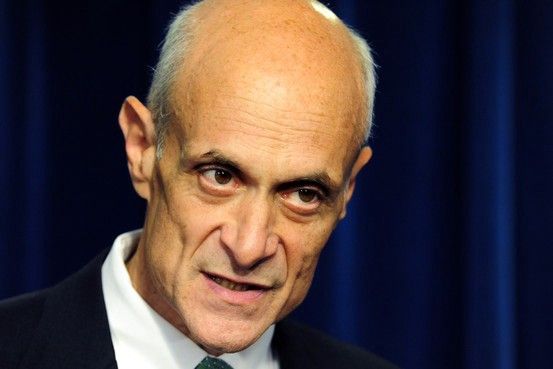
Chertoff’s colleague on the advisory board member was “Sir David Omand, a former director of Britain’s signals intelligence spying agency GCHQ.”
“That these groups were potentially influential,” observe Miller and his team, “is demonstrated by the involvement of figures like former Home Secretary Lord Reid, joint vice-chair of the Homeland Security APPG along with Lord Carlile, the government’s independent reviewer of anti-terrorism legislation between 2005 and 2011, who oversaw the anti-extremism Prevent Strategy review.”
Members of both APPGs “tend to share a militaristic understanding of security,” as revealed by the other APPGs they sit on.
Spinwatch highlight the example of Baroness Nicholson, a member of the APPG for Transatlantic and International Security. Appointed by David Cameron as the UK’s trade envoy to Iraq, she simultaneously served as executive chairman of the Iraq Britain Business Council:
“On the tenth anniversary of the Iraq invasion, she penned an article for Lib Dem Voice entitled ‘Was the war worth it?’, a question she answered with ‘a resounding yes’, despite acknowledging the ongoing violence in the country. Citing economic growth figures, her tone was triumphalist because, she said, the free market, which had been ‘stifled’ under Saddam Hussein, was now flourishing — she was ‘proud to say’ that oil industry growth, which she singled out as an example, was being ‘led by British company BP.’”
The caliber of the ‘expert speakers’ hosted by the APPG is also revealing. They include, the Spinwatch report shows, former US Defence Secretary William Perry — the godfather of the Pentagon Highlands Forum (which as I’ve reported elsewhere has played an instrumental role in neoconservative policies, particularly mass surveillance and wars in the Middle East); Richard Hooker, dean at the NATO Defence College; Douglas Feith, Bush’s Under-Secretary of Defence for Policy (2001–2005), who previously co-authored with HJS patron Richard Perle a controversial roadmap for the break-up of the Middle East; William Lietzau, then US Deputy Assistant Secretary of Defence for Detainee Policy and a key figure responsible for establishing the Guantanamo Bay detention camp; and John Bolton, Bush’s ambassador to the UN.
Selling austerity to empower banks
Coinciding with the Society’s increasing lurch to the far-right — exemplified in its 2011 absorption of Douglas Murray and his Centre for Social Cohesion — HJS launched a project for the rehabilitation of public perceptions of capitalism.
The Spinwatch team draw on my own reporting in The Guardian on how the project was partially funded by the City of London Corporation, to demonstrate why financial actors “deemed responsible for having caused the crisis” should not be punished, and to combat calls for better regulation of banks and markets.
Spinwatch confirms that other financial interests courted to support the project included McKinsey & Company, the leading US financial services consultancy; KPMG, the Dutch global accountancy firm; and Clifford Chance, the British multinational law firm.
The project led to a taskforce chaired by Lady de Rothschild, CEO of EL Rothschild and Dominic Barton, Global Managing Director of McKinsey, which published a report in 2012 called ‘Towards a More Inclusive Capitalism.’
In May 2014, the HJS project culminated in a major global conference on the need for a more “inclusive capitalism,” which, however, did nothing to address the fundamental structural causes of the global financial crisis — but did recommend measures to ameliorate growing public hostility to neoliberal austerity.
Keynote speakers included former US president Bill Clinton, IMF Director Christine Lagarde and Bank of England Governor Mark Carney. Participants at the conference represented companies that together controlled about 30% of the world’s total financial wealth.
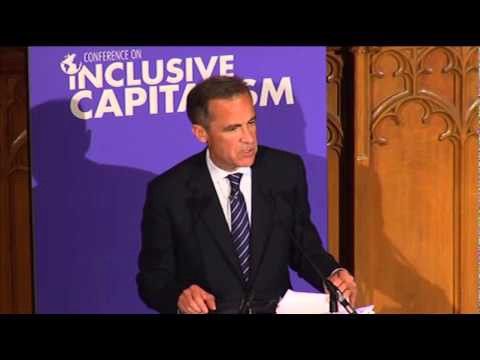
Spinwatch also draw on my Guardian reporting about HJS’ little-known move into political risk consultancy for commercial interests and governments, under a profit-making company called ‘Strategic Analysis.’
The latter’s principal work involves producing a quarterly Middle East and North Africa Oil and Gas Sector Risks and Forecasts Report to “benefit individuals within the legal, financial services, energy, banking, consultancy, infrastructure sectors”; as well as “commercially-relevant research, analysis and consulting services” for clients “to assist them with mitigating risks and identifying opportunities for their business.”
As the Spinwatch report concludes:
“It is difficult to see how an alignment with the interests of a sector notorious for benefitting from the ‘resource curse’ is compatible with the HJS’s rhetoric of democracy promotion. This is all the more troubling given Strategic Analysis’ emphasis on the political clout of HJS. The Strategic Analysis website also states that, ‘The Henry Jackson Society regularly deals with the House of Commons.’ Alan Mendoza has declared his affiliation with Strategic Analysis and with HJS in the Register of Interests of Lords Members’ Staff, where he is also listed as an aide to Lord Trimble and, accordingly, has a parliamentary pass.”
Who pulls the strings?
The new Spinwatch report was sponsored by The Cordoba Foundation, a think tank in London, which has previously been criticised by the Quilliam Foundation and others for being a “front” for the Muslim Brotherhood.
There is scant evidence for this, beyond the fact that Anas al-Tikriti’s father, Osama Tawfiq al-Tikriti, was a head of the Muslim Brotherhood Party in Iraq. Osama Tawfiq is now head of the largest Sunni political bloc in Iraq, the Iraqi Islamic Party, which is part of the incumbent US-backed government in Iraq.
Anas al-Tikriti was, however, previously involved in helping to establish the Emirates Centre for Human Rights, a respected London NGO campaigning against human rights abuses in the United Arab Emirates (UAE). This is no doubt the main reason why the UAE — which has long functioned as a terror financing hub for al-Qaeda– has the gall to have declared al-Tikriti’s Cordoba Foundation a terrorist group.
I asked report author, Prof. David Miller, founder and head of Spinwatch, what he would say in response to accusations that the new Spinwatch report on HJS had been “spun” on behalf of Cordoba. Miller described this as a “smear” based on “no evidence”:
“In not a single case in relation to our work on the ‘Cold war on British Muslims’ or in the work on the Israel lobby, have any inaccuracies even been alleged.”
The critical issue, he pointed out, is that groups like HJS, Harry’s Place, and others are opaque about funding, despite their claims to be promoting liberalism.
Unlike them, Spinwatch’s sources of funding since inception are meticulously catalogued on its website. Overall, Spinwatch has received a relatively tiny amount from Cordoba — its other major funders include the Joseph Rowntree Charitable Trust, the Open Society Foundation, the Network for Social Change, the European Commission, among many others.
“We are transparent about our funding. Our critics are not,” said Prof. Miller.
“One reason that we are transparent is that we believe that conflict of interest is a serious issue in both journalism and in academic work… Readers will thus have to judge our work in the context of our conflict of interest disclosures of the sources of our funding and they will also have to judge whether our statements that Cordoba other funders have had any influence on our work is credible. For my part I can state that neither Cordoba nor MEMO [Middle East Monitor] have ever asked us to change anything in our reports and in fact, they have not been given the chance to review the text before publication.”
In contrast, it has taken Spinwatch’s latest investigation to shine a light on the sorts of financial interests behind HJS, by mining the scant data available in the public record. The report finds that HJS’ elite benefactors “include a number of foundations linked to Conservative Party donors.”
One, who specifically funded HJS’ anti-Palestinian media project ‘Just Journalism,’ is Lord Stanley Fink, described as the “godfather of the hedge fund industry,” a major Tory Party donor, and a former treasurer of the Conservative Party.
According to Antony Lerman, former director of the Institute for Jewish Policy Research (JPR), Kalms once told him that the only ‘interest’ European Jews needed to pursue in Europe “is fighting Islam, showing complete support for the two people who had stood up to Islam — Tony Blair and George Bush. Most Muslims didn’t want to integrate. Ultimately they would line up behind the fundamentalists.”
Other HJS funders have included Edward Atkin, “a regular Conservative donor”; and the family of River Island founder Bernard Lewis, “which donated to the Conservative Party through the Lewis Trust Group,” among many others.
But the full scale of HJS’ funding by this range of overlapping far-right, pro-Tory and anti-Palestinian interests remains unknown, because HJS does not operate with any transparency concerning its main donors.
The Spinwatch team concludes:
“Far from promoting democracy both domestically and abroad, like the original founders intended, the society has joined the ranks of the transatlantic Islamophobia network by relying on the financial support of strident pro-Israel elites and their grant-making foundations.”
The implications are unavoidable.
The Henry Jackson Society is not an independent think-tank.
It is a front group for powerful far-right neoconservative extremists at the helm of the corporate-military-intelligence complex.



